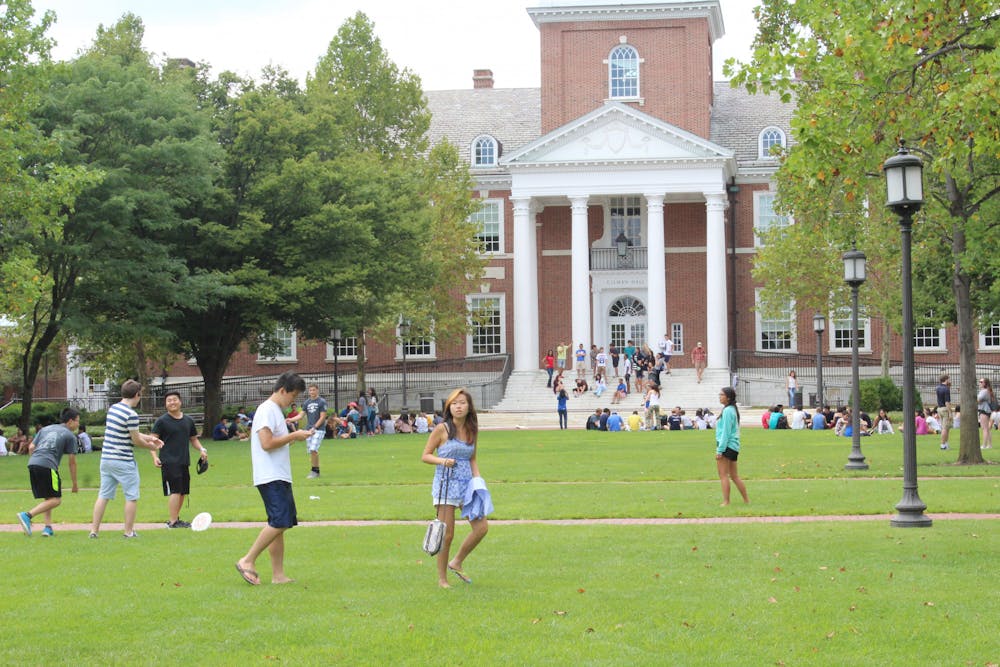Hopkins announced plans on Friday to largely return to normal this fall. Most classes will be held in person, and COVID-19 vaccines will be required for students. On-campus housing will be open at near-full capacity, and residency requirements will be reinstated for freshmen and sophomores. Administrators will determine face covering requirements based on public health conditions closer to the fall.
Junior Sylvana Schaffer supports the University’s decision.
“This is basically the best announcement Hopkins has made since the beginning of the pandemic,” she said. “After three semesters of largely virtual education, I think that bringing students back to campus and returning to largely in-person learning is vital.”
Sophomore Andrea Guillen called on the University to provide more information about student organization activities.
“There is no information about clubs, which I would really appreciate,” she said. “One of my clubs, the Witness Theatre Company, is struggling right now to find space with capacity limits. I wish we had more information right now so we can better plan.”
In an interview with The News-Letter, Karen Lancaster, the assistant vice president of external relations for the Office of Communications, shared that the University plans to release guidelines to hold in-person activities for student organizations near the start of the fall semester.
In-person classes and University housing
The University plans to hold most classes in person, while large classes with more than 50 students will either meet online or be broken up into smaller sections.
Incoming freshman Hannah Puhov, who deferred enrollment last year due to the University’s fully online operations, also believes that Hopkins made the right decision.
“Hopefully they stick to what they’re saying about splitting bigger classes into smaller groups instead of doing it online, especially for freshmen who’ll be taking classes like Calc I, Physics I and Chem I,” she said.
Undergraduate courses for the fall semester have been released as well. Most classes are offered in-person, and hybrid options were not available for all courses.
Lancaster noted that classroom capacity limits put in place will also be lifted to facilitate in-person classes.
“The fall schedule that was just released in SIS for Homewood students has returned to scheduling rooms as their pre-pandemic density,” she wrote. “As we get closer to fall, our health and safety team will evaluate the need for any modification for classrooms.”
While freshman Rajaa Alhamd is also excited for a normal semester, she is concerned about the lack of virtual classes for students who are reluctant to return in person.
“They shouldn’t be having strict requirements for dorming or going in person,” she said. “Attendance being required is weird since I don’t know if a lot of people will feel comfortable yet.”
Hopkins opened housing facilities to 1,350 students who requested one in the spring. Sophomores were allowed to live in off-campus housing, an option that will no longer be available. During the fully online fall semester, only students with demonstrated need were able to stay in a dorm.
The University noted in its announcement that students at high risk for severe outcomes from COVID-19 can seek accommodations from the Office of Student Disability Services.
Vaccinations
All students returning to campus will be required to be vaccinated for COVID-19, barring any religious or health exemptions. Several peer institutions have adopted this policy as well. The University is also considering requiring the same for staff and faculty.
Schaffer believes the vaccination requirement is necessary to reopen the campus.
“They are handling changing public health circumstances in the best way possible, requiring vaccinations for the vast majority of students while also working to facilitate access,” she said. “I would like to see them require vaccines for faculty and staff as well, since they tend to be more vulnerable than the student body.”
Hopkins, however, has yet to secure the capacity to guarantee vaccinations for students. International students living abroad who do not have access to vaccines will likely be unable to be on campus at least initially even if they return.
The University will also require students abroad who received vaccines not approved by the U.S., such as the one by AstraZeneca, to be vaccinated again with either the Moderna, Pfizer-BioNTech or Janssen vaccines.
Freshman Irene Lee, an international student from South Korea, believes that this requirement will be difficult for international students.
“In order to be vaccinated with the US-approved vaccine, we need at least three weeks to be fully vaccinated. This means that we need to be in the States about a month prior to when school opens, which will require lots of money and time,” she said. “However, I am not saying that this should not be the case, given that some of the vaccines are causing lots of side effects and some are not as effective as the US-approved ones.”
She noted that in South Korea, no U.S.-approved vaccines are being currently offered. This is causing her to question the logic behind getting vaccinated in South Korea knowing she will need another vaccine in August.
In a separate email, the University announced that it will provide transportation to the M&T Bank Stadium, a mass vaccination site, for students currently living in Baltimore. Maryland expanded vaccine eligibility earlier this week, and everyone above the age of 16 can be vaccinated at a mass vaccination site.
While many aspects of a pre-pandemic semester will return in the fall, Hopkins noted that safety protocols — including regular testing and frequent air filtration — will continue. Isolation and quarantine housing will also continue to be available.
Guillen believes that such communication was appropriate.
“If we keep the testing three times a week, that’s going to get a little frustrating,” she said. “But it’s good that they are warning us that things will remain in place for the next semester and not pretending that everything is going completely normal.”
Romy Koo contributed reporting to this article.





